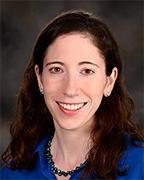Part of the Observation of Environment and Reproductive Endocrine Effects Study (OBSERVE Study)
The purpose of this study is to research how the environment may affect a child’s hormones and reproductive system. The study will focus on health conditions such as early or delayed puberty, irregular menstrual periods, and polycystic ovarian syndrome (PCOS).
Who Can Participate?
- Children from age 8 to 17 years old.
- Confirmed or suspected diagnosis of endocrine or reproductive disorders.
- Able to travel to Research Triangle Park, North Carolina.
What Is Required?
- Study visits every 12-15 months up to age 23 for clinical care.
- Medical history, physical exams, blood and urine samples, answering questionnaires.
- Specialty testing measuring body composition and metabolism, if needed.
What Are the Advantages for Participants?
- Evaluation and consultation by a specialist to confirm the diagnosis.
- Individualized medical care and treatment at no cost.
- Clinical laboratory tests, X-rays, and ultrasounds may be available at no cost.
Compensation is provided upon completion of each study visit.
Who Is Running the Study?
A team led by Natalie Shaw, M.D., from the National Institute of Environmental Health Sciences Clinical Research Unit in Research Triangle Park, North Carolina.
Lead Researcher

Natalie D. Shaw, M.D., MMSc.
natalie.shaw@nih.gov
Natalie D. Shaw, M.D., M.M.Sc. received a B.S. from Cornell University, an M.D. from the State University of New York (SUNY) at Buffalo, and a Masters in Medical Sciences (MMSc) from Harvard Medical School. She completed her pediatrics residency at Children's Hospital of Pittsburgh, a pediatric endocrinology fellowship at Boston Children's Hospital, and a clinical research fellowship in the Reproductive Endocrine Unit at Massachusetts General Hospital.
In 2015, Shaw was one of five junior researchers selected as a Lasker Clinical Research Scholar by the National Institutes of Health. The Lasker program is a joint partnership between the NIH and the Lasker Foundation designed to support a small number of exceptional clinical researchers in the early stages of their careers. Its goal is to promote the development of physician-scientists as they transition to fully independent positions. When Shaw joined NIEHS in September 2015, she became the first Lasker Scholar in the history of the institute.
Research Webpage
For More Information About This Study
- Call: 1‑855‑MYNIEHS (1‑855‑696‑4347)
- Email: myniehs@nih.gov
- Protocol Number: 001617-E
- Study Background and Protocols
This content is available to use on your website.
Please visit NIEHS Syndication to get started.


